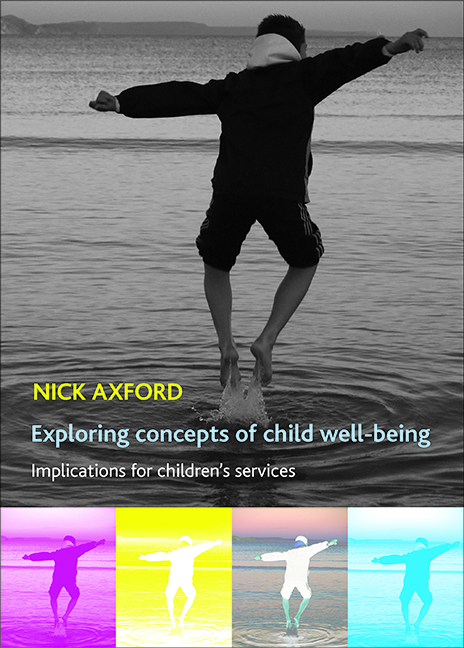Summary
Recent years have witnessed a revival in the popularity of measuring need as a precursor to distributing services, particularly in health, housing, social care and children's services (Percy-Smith, 1996; Axford, 2007). There are several reasons for this, starting with new legislation: the England and Wales 1989 Children Act, for example, requires every local authority to identify the needs of children living in their catchment area and to provide services accordingly (subsequently reinforced by the 2004 Children Act). Another factor is the growing expectation that agencies will achieve maximum benefit from minimum expenditure; this increases the pressure to chart the need terrain before allocating resources. There is also the growing realisation among academics, practitioners and policy-makers that children's problems are best understood if viewed from several angles; need as a concept permits this holistic perspective. And public disquiet about social inequalities, notably the way in which people with similar needs are treated differently, has prompted more attention to service consistency.
Notwithstanding this trend, philosophers and social scientists have long argued about the meaning and usefulness of need as a concept. Opinions range from those who think that need provides a rigorous moral basis for the distribution of welfare goods, to those who consider it so ambiguous as to be useless (Plant, 1991). Some would like it to underpin the activities of government, filling the gap left by the collapse of theological and metaphysical convictions. Others argue that this would impose one set of values on a morally pluralistic society.
Concept
Need is a slippery concept that resists definition. It is used diversely in everyday speech without much distinction between the qualitative nature of statements such as ‘I need a burger’ or ‘she needs to get better’. Therapists, social workers, educational psychologists and other professional groups all interpret need differently. What a person is considered to need also varies with age, activity, physical and mental capacity and outlook. Bowlby (1951) looked at infants and stressed the need for intimacy and opportunities for forming close, loving relationships with responsive people. Maslow (1943) examined successful people and suggested that children's needs for nourishment and safety are superseded in adulthood by the need to achieve fulfilment through creativity and relationships.
Information
- Type
- Chapter
- Information
- Exploring Concepts of Child Well-beingImplications for Children's Services, pp. 15 - 28Publisher: Bristol University PressPrint publication year: 2008
